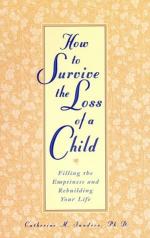|
This section contains 9,851 words (approx. 33 pages at 300 words per page) |

|
DEATH is a fact of life. This statement is at once banal and profound. It is banal insofar as it is common knowledge that all human life is limited in duration; it is profound, however, insofar as serious reflection on the end of life challenges the limits of human language, conceptual thought, symbols, and imagination. In an important sense, the meaning of life is dependent in part on one's understanding of death. That death is a fact of life is also paradoxical, for it suggests a coincidence of opposites—death-in-life and life-in-death. How people have imagined death-in-life and life-in-death has shaped their experience of biological death both individually and collectively. Death is paradoxical, as well, in that although every death is an individual experience—only individuals die, even when they die together in large numbers—death is also a profoundly social experience.
Death as a biological fact or...
|
This section contains 9,851 words (approx. 33 pages at 300 words per page) |

|


